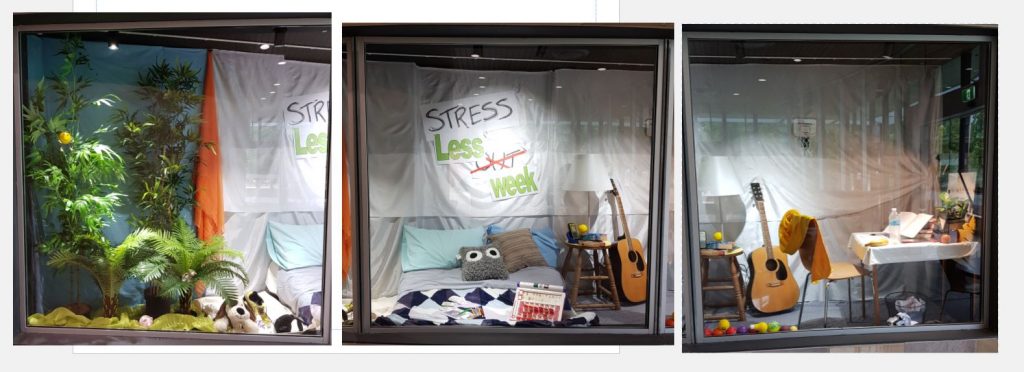Ways in which USQ Library has contributed to good health and wellbeing

Academic libraries make a difference to the health and well-being of their clients. As educators of the next generation of health care professionals, USQ Library provides access to evidence-based health information and research. As a provider of safe spaces on campus where students can work and study, regardless of their abilities or challenges, USQ Library supports the well-being of students throughout their learning journey.
As employers, academic libraries can also create safe workspaces for staff. USQ Library seeks to support staff wellbeing by providing safe physical and online work environments in which staff can meet the requirements of their roles and tasks, develop professionally, and be supported to achieve their goals.
Supporting Research Student Wellbeing through the USQ Research and Writing League
Douglas Eacersall, HDR Learning Advisor
The USQ Research and Writing league was set up to assist Higher Degree by Research (HDR) students with their research. This involved establishing and maintaining a safe space for students to interact with each other and share the challenges and triumphs of undertaking research. Regular meeting times were established to provide students with tailored support from library staff and opportunities for networking. This initiative supports students’ wellbeing and allows them to progress through the research journey knowing they have the support of their peers and Library specialists.
Student feedback
“The Research and Writing League has helped to contain my panic and angsty moments when nearing my deadlines.” (Student 1).
“It has been such a great support for me, even in only three sessions. During these sessions I have completed my confirmation proposal document, finalised my speech for the confirmation presentation and written responses to corrections given.” (Student 2).
Library connections with on-campus clients
Lyndelle Gunton, Manager (Education Support)
Library staff have contributed to the on-campus experiences for students and staff by using window and resource displays to invite conversation and connection around important issues and events during the academic calendar. Client Support teams have used events such as R U OK Week, Harmony Week and Stress Less Week and themes such as self-care during exam periods as the basis for developing window displays. Staff sought to create safe spaces and actively participated in campus-wide activities to create opportunities to connect with staff and students who use the Library’s physical spaces.

Library staff experiences of the COVID-19 disruption
Clare Thorpe, Associate Director, Library Experience
On March 25, 2020, USQ campus libraries closed in response to risks posed by the COVID-19 pandemic. All staff who could work from home were instructed to do so. USQ Library moved to an exclusively online service model. 92% of USQ Library staff were able to work from home and transitioned service delivery to remote models, using phone, chat, videoconferencing, and online collaboration technologies.
The stories shared by USQ Library staff of their experiences during the COVID-19 shutdown suggests evidence of an organisational culture that is resilient, innovative, productive and creative during times of crisis. The evidence identifies a number of benefits that should be encouraged and maintained as staff transition back to campus-based work. These include:
- Flexible working arrangements that support productivity and time to focus without interruptions
- Social connectedness across campuses
- Physical and mental wellness
Return to campus “re-entry” activities were designed to support staff who were anxious or reluctant to return to “old ways of working”. Attention focused on strategies to avoid campus favouritism or bias creeping back in as staff returned to their Toowoomba, Springfield and Ipswich workspaces.
The stories shared in this exercise reflect favourably on Library leaders across all levels who supported staff during the COVID-19 pandemic. Library leaders and supervisors are to be congratulated on fostering a working environment that is connected, supportive, flexible and resilient.


